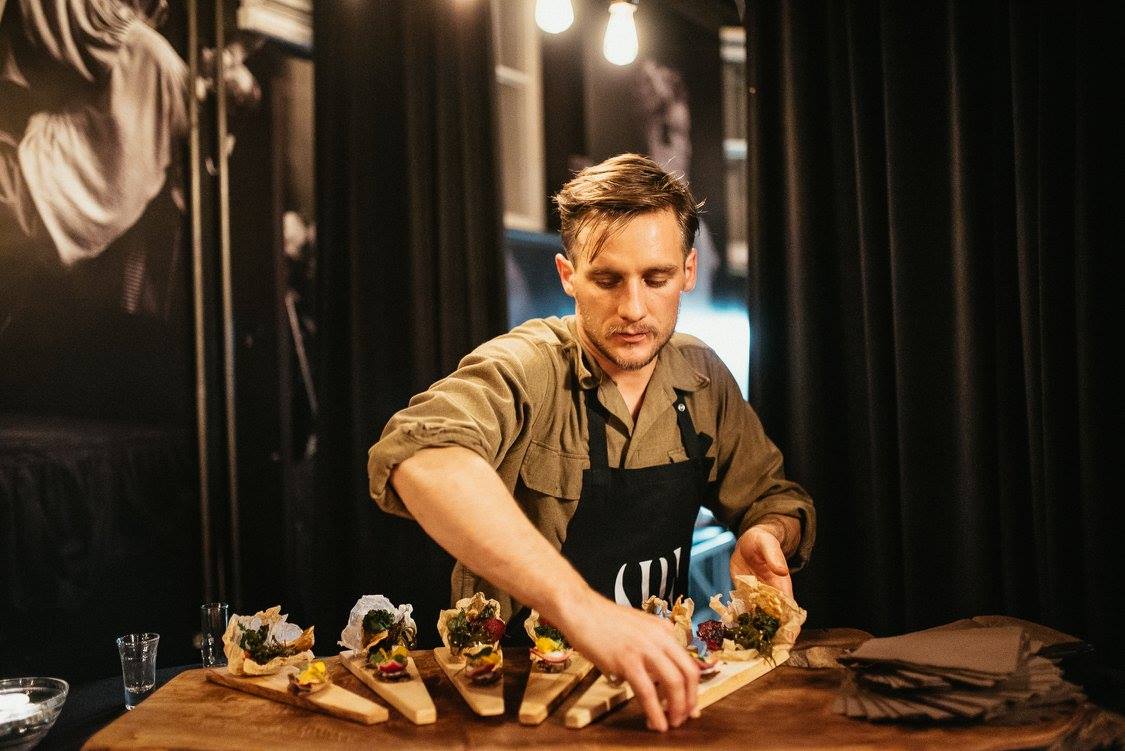We use cookies on our website.
Some of them are necessary for the functioning of the site, but you can decide about others.
Renaissance of food culture

The introduction to the descent of the first column is a very pleasant Sunday challenge, while outside the earth imperceptibly wakes up and the birds charge the ode of spring, the period when we all wake up from the numb body and yearn for the first smell of flowers. How to explain to the reader in my first words what the purpose of the column will be, when an endless whirlwind of visions and unthought-out thoughts is raging inside me. I will slowly peel back the layers as my self peels back the scenery of my own universe.
Because I believe in an idealistic future where man reaches the level of a responsible inhabitant of the planet, I can now play with my thoughts, what kind of reality is possible. It takes centuries, even millennia, to transform human culture. Change is triggered by the development of technology, often a natural disaster or war, when man is left with nothing and is forced to build new foundations based on past experience.
The past teaches us that many civilizations have died out due to the careless and insatiable handling of natural resources, with a lack of understanding of the fragility of the ecosystems that surround us. Today's technology allows us to measure and analyze the extent and condition of agricultural land, forests, drinking water, sea acidification and air pollution. By all possible indicators, a reasonable person can grasp the simple fact that available natural resources are available to us in limited quantities and that we will have to change the paradigm of the endless consumer market.
My personal perspective comes from the issue of the food industry and agriculture, which can become one of the key economic sectors in protecting ecosystems, reducing CO2 and improving human health. Electrification of transport is mostly mentioned as the flagship of the transition to a carbon-free society, but it certainly will not solve the disaster that is occurring due to the desertification of dried-up agricultural lands and the cutting down of the lungs of the planet, tropical forests. All agricultural land on the planet is already 11% of the total land area and with the increase in population these numbers will grow exponentially. As long as agriculture is focused on industrial animal husbandry and the production of feed crops, as long as agricultural subsidies are distributed among the largest meat processing plants, until then the production of crops for humans will slowly die out, until all that remains on the horizon are endless fields of soybeans and corn. There are 39,000,000 hectares of corn in North America alone, and with this volume, it has become the cheapest calorie on the planet, filling most of the cows' stomachs.
We are currently offered several solutions, several ways to achieve key reforms and transformation of society. On the one hand, there is the consumer, who orchestrates and dictates the offer in markets, but is influenced by the industry, which skillfully creates trends and directs consumption. Until the consumer lifts their head out of this murky quagmire and makes more responsible decisions, the market will remain unchanged. The transition to a predominantly or 100% complete plant-based diet, based on regional plant proteins and complex carbohydrates, will stimulate a renaissance in agriculture and the food industry. If we exclude from consideration the ideological orientation of the consumer, it will be necessary to simply ask which diet our civilization will survive with the natural resources that are still available.
Smaller and more agile farms can take the initiative in creating new trends and offer innovative whole plant foods with their own cultivation of crops and their own processing facilities. Younger generations are increasingly taking responsibility when buying food, so in the future they will increasingly use locally produced foods, which they feel are not harmful to nature. Food security rests on the growth of smaller, fragmented farms that feed their network of informed supporters. Global Food Security served us with the important statistic that we grow 30% of food for people on farms with less than 2 hectares of land. We need to increase local food distribution and reduce purchases of imported food, especially from other continents and distant European countries.
Monoculture agriculture has dried up our land, so it will be necessary to transform land with regenerative approaches, without plowing the land, where large amounts of stored CO2 are released, and with afforestation of arable land and uncultivated patches of land. Finally, the tree is the cheapest technology for storing CO2 in the soil and for producing oxygen. Too often, the market-oriented market is looking for high-tech solutions that are expensive and energy-consuming.
When considering measures to achieve a carbon-free society, we must not bypass the agricultural strategy and the transformation of food culture. Also, the fight to reduce CO2 emissions does not address the sustainable management of natural resources. Until we protect forests, human health, water and agricultural land, it is difficult to talk about a green future.
Original article on Svet Kapitala -
https://svetkapitala.delo.si/mnenja/renesansa-prehranske-kulture/







